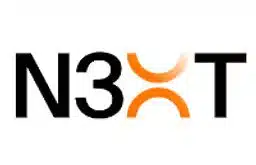n
An official with the federal government’s new Consumer Financial Protection Bureau gave independent sales organizations and others in the merchant-acquiring industry a hint about what the controversial agency will be looking for as mobile payments take hold and technology advances all forms of electronic payments.
n
n
“We think in particular that mobile payments and innovation in general in the payment space really is an opportunity,” Marla Blow, assistant director in the CFPB’s Card Markets Group, said Thursday at the MidWest Acquirers Association annual conference in Chicago. Part of that opportunity, she said, was the ability of smart phones to bring into the electronic-payments mainstream people who may have been underserved in the past.
n
n
“But we also recognize that there are challenges associated with that, and that there needs to be safety and there needs to be protection,” Blow said. “Merely presenting your phone should not put you at greater risk than you were” if presenting plastic for the same purchase, she said.
n
n
What does that mean for ISOs, processors, and technology companies working in the payments arena? It means that while banks to date have been by far the most regulated entities in payments, the CFPB with its broad mandate might be looking over the shoulders of companies that heretofore have had little contact with government agencies other than the Internal Revenue Service. Consumers’ ability to dispute charges or receive refunds needs to be protected even as new players enter payments and technologies such as mobile payments take hold, according to Blow.
n
n
“Our ultimate goal is to be able to be as nimble and flexible as we can be and look for, as I mentioned, common rules of the road applied to all [players], so to the extent that you’re a new technology player or some other intentionally or previously relatively unregulated entity [that] starts to act in this space, this is an area where the CFBP can and will go in and do examinations and make sure that current practices are compliant with existing law,” she said. Blow added that the bureau also would write new rules regarding payments if it sees an unmet need.
n
Blow’s comments before the regional ISO trade group came just a day after the CFBP announced its first public enforcement action, one that targeted the issuing side of the credit card business. The CFPB issued an order requiring a bank subsidiary of the big issuer Capital One Financial Corp. to refund $140 million to two million consumers and pay a $25 million fine for what the bureau called deceptive marketing practices. The Office of the Comptroller of the Currency also cracked down on Capital One over the same practices, bringing the company’s total cost to $210 million.
n
Blow did not mention if the CFPB was investigating any specific cases on the acquiring side of payments, but she made it clear the bureau is ready to do so if needed. Her message wasn’t lost on her listeners. “The good news about the message that I think I just heard is if we play in the sandbox nicely, they’re not going to feel the need to come out to change and let the sand out,” said the session moderator, industry consultant Deana Rich.
n
Speaking with Blow was Maggie Lassack, an attorney in the Federal Trade Commission’s Division of Marketing Practices. The FTC has made it known that ISOs need to be diligent in underwriting new merchants and monitoring existing ones so that telemarketers or other dishonest merchants don’t defraud consumers.
n
n
n
nn






